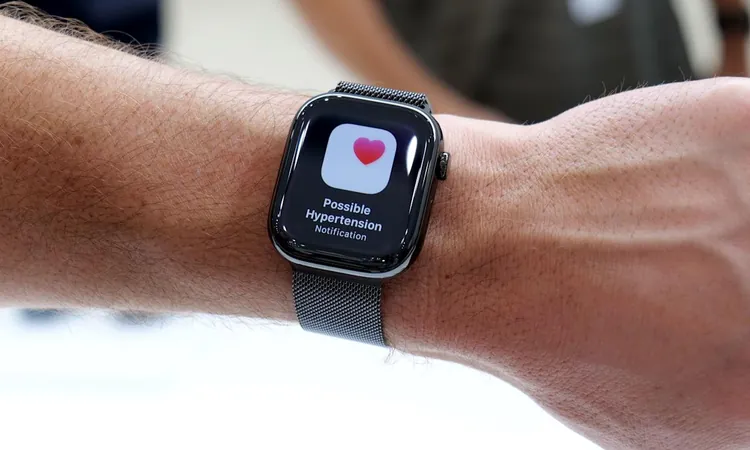
Brushing Your Teeth Could Save Your Life: Shocking Study Links Oral Hygiene to Heart Attack Risk!
2025-09-22
Author: Jacob
Unexpected Connection Between Oral Health and Heart Disease
A groundbreaking study published in the Journal of the American Heart Association has revealed a startling link between the bacteria in our mouths and our risk of heart attacks. The research highlights that neglecting your nightly toothbrushing routine might not just lead to cavities, but could also jeopardize your heart health.
Finnish Researchers Uncover the Danger
In an extensive study conducted in Finland, researchers analyzed coronary plaque samples from 121 individuals who suffered sudden cardiac arrest and 96 patients undergoing surgery for clogged arteries. They discovered that DNA from Viridans streptococci—mouth bacteria typically found in oral and digestive tracts—was present in over 40% of the plaque samples.
Unlike typical invaders, these bacteria were not floating freely; instead, they were found embedded in biofilms within artery walls, cleverly hiding from the immune system. This hints at a mechanism where they might break free, instigating inflammation that destabilizes plaques and potentially triggers heart attacks.
Why It Matters: Oral Bacteria in Your Blood?
This revelation underscores the crucial connection between dental health and cardiovascular wellness. Everyday dental procedures, such as tooth extractions and root canals, can allow oral bacteria to infiltrate the bloodstream. Experts suggest that untreated gum disease may also play a significant role in this dangerous crossover. Dr. Deepak Ravi, a cardiologist, warns that these bacteria can increase the risk of coronary artery disease when they settle into plaque.
The Misconception About Antibiotics
Despite these eye-opening findings, cardiac specialists urge caution regarding the use of antibiotics as a quick fix for heart disease. Dr. Elizabeth Klodas emphasizes that antibiotic treatments aimed at tackling heart disease through infection control have largely been unsuccessful, warning against misconceptions that antibiotics can prevent heart attacks.
A Simple Solution: Good Oral Hygiene
While antibiotics are not seen as a viable solution, maintaining good oral hygiene could indeed make a significant difference. Regular dental check-ups, brushing, and flossing are essential practices that not only ensure a healthy mouth but also contribute to heart health. Dr. Klodas reiterates the power of basic preventive measures: controlling cholesterol, blood pressure, and enjoying a heart-healthy lifestyle.
Lifestyle Factors: The Heart of Prevention
Cardiologists stress that while bacteria are a crucial piece of the heart health puzzle, lifestyle factors remain central to prevention. Adopting a balanced diet rich in fruits, vegetables, whole grains, and lean protein, engaging in at least 150 minutes of physical activity per week, avoiding smoking, and managing alcohol consumption are key to protecting your heart.
As Dr. Klodas sums it up, "Heart disease remains our number one killer, but it's largely preventable. Sticking to the fundamentals is essential!"









 Brasil (PT)
Brasil (PT)
 Canada (EN)
Canada (EN)
 Chile (ES)
Chile (ES)
 Česko (CS)
Česko (CS)
 대한민국 (KO)
대한민국 (KO)
 España (ES)
España (ES)
 France (FR)
France (FR)
 Hong Kong (EN)
Hong Kong (EN)
 Italia (IT)
Italia (IT)
 日本 (JA)
日本 (JA)
 Magyarország (HU)
Magyarország (HU)
 Norge (NO)
Norge (NO)
 Polska (PL)
Polska (PL)
 Schweiz (DE)
Schweiz (DE)
 Singapore (EN)
Singapore (EN)
 Sverige (SV)
Sverige (SV)
 Suomi (FI)
Suomi (FI)
 Türkiye (TR)
Türkiye (TR)
 الإمارات العربية المتحدة (AR)
الإمارات العربية المتحدة (AR)